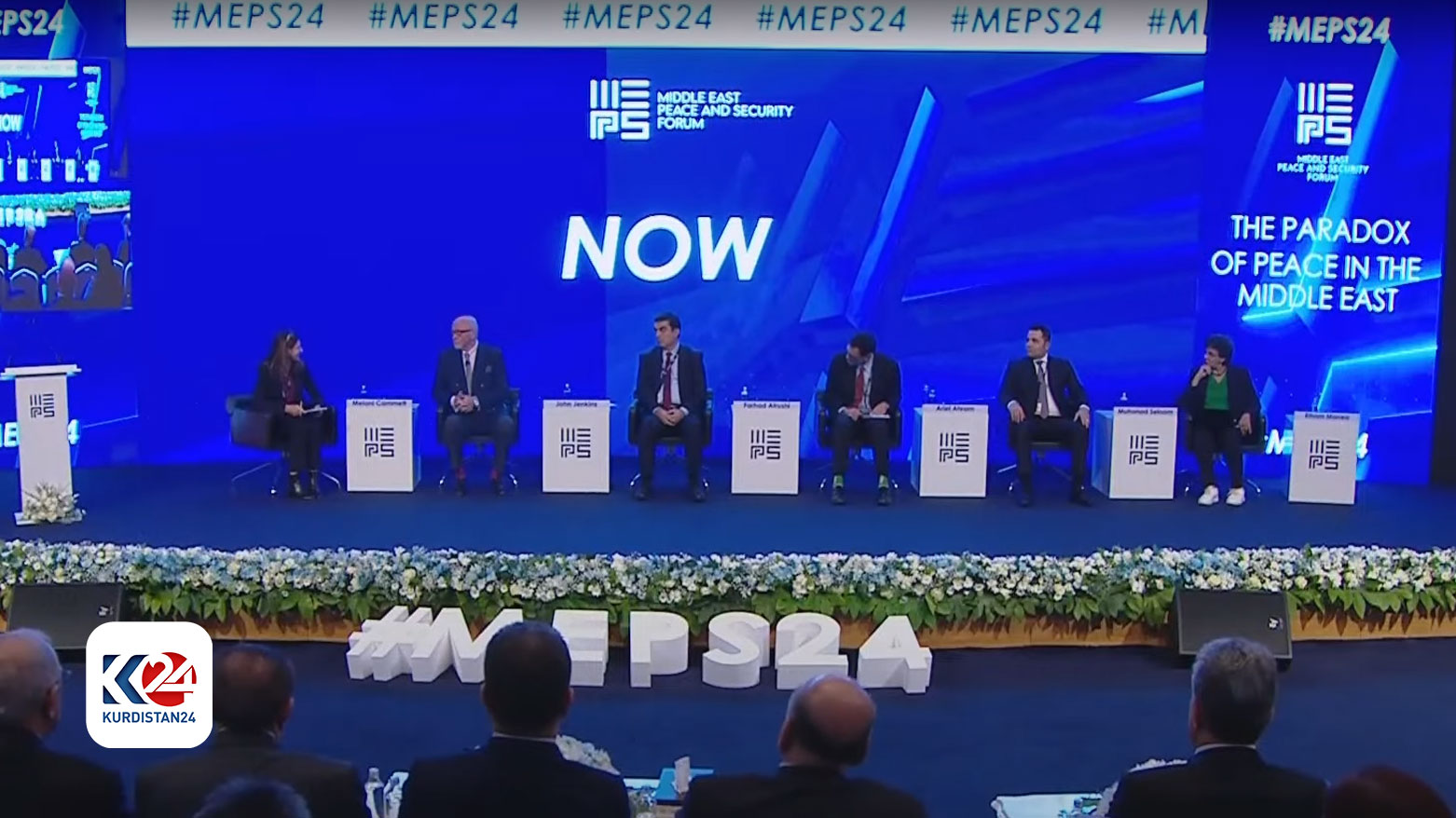MEPS24 panel discusses state-building, self-determination, power-sharing in Middle East
Ariel Ahram from Virginia Tech University and the Crisis Response Council praised the Kurdistan Region as a notable example of effective governance.

Nov. 22, 2024
ERBIL (Kurdistan24) — The fourth session of the Middle East Peace Summit 2024 (MEPS24), titled ‘State-Building, Self-Determination & Power-Sharing: The Future of the State System in the Middle East,’ delved into governance models, regional cooperation, and constitutional challenges in Iraq.
Prominent academics and political figures shared insights on the way forward for the Middle East’s state system.
Kurdistan Region: A Model of Successful Governance
Ariel Ahram from Virginia Tech University and the Crisis Response Council praised the Kurdistan Region as a notable example of effective governance.
"Kurdistan Region is one of the examples of successful governance," he stated, highlighting its unique position within Iraq and the broader Middle East.
Call for Enhanced Baghdad-Erbil Cooperation
Dr. Muhanad Seloom from the Doha Institute underscored the importance of collaboration between Baghdad and Erbil, emphasizing that neither side can independently tackle the region's complex challenges.
"Cooperation should be the next phase of Baghdad-Erbil relations," Seloom urged. He further pointed to the technological disparities between the Kurdistan Regional Government (KRG) and Iraq, calling for joint efforts to bridge this gap.
"There is a gap in technological advances between Iraq and KRG. Neither Baghdad nor the KRG can address all the issues, so they have to cooperate," he explained, stressing the necessity of partnership to address Iraq's multifaceted security risks.
Constitutional and Identity Challenges in Iraq
Farhad Atrushi, former Governor of Duhok, shed light on Iraq's ongoing constitutional and identity struggles. He revealed that a significant portion of Iraq's constitution remains unimplemented.
"Sixty-seven percent of the Iraqi constitution hasn’t been implemented so far," Atrushi noted, highlighting the lack of progress in addressing fundamental governance issues. He also pointed to the broader identity crisis still plaguing Iraq. "We still have an identity crisis," he emphasized.
Navigating Security and Governance in the Middle East
The session underscored the critical need for state-building strategies that prioritize cooperation, inclusivity, and the implementation of constitutional principles. Panelists agreed that bridging gaps—technological, political, and social—between Iraq and the Kurdistan Region is essential for fostering stability and progress in the region.